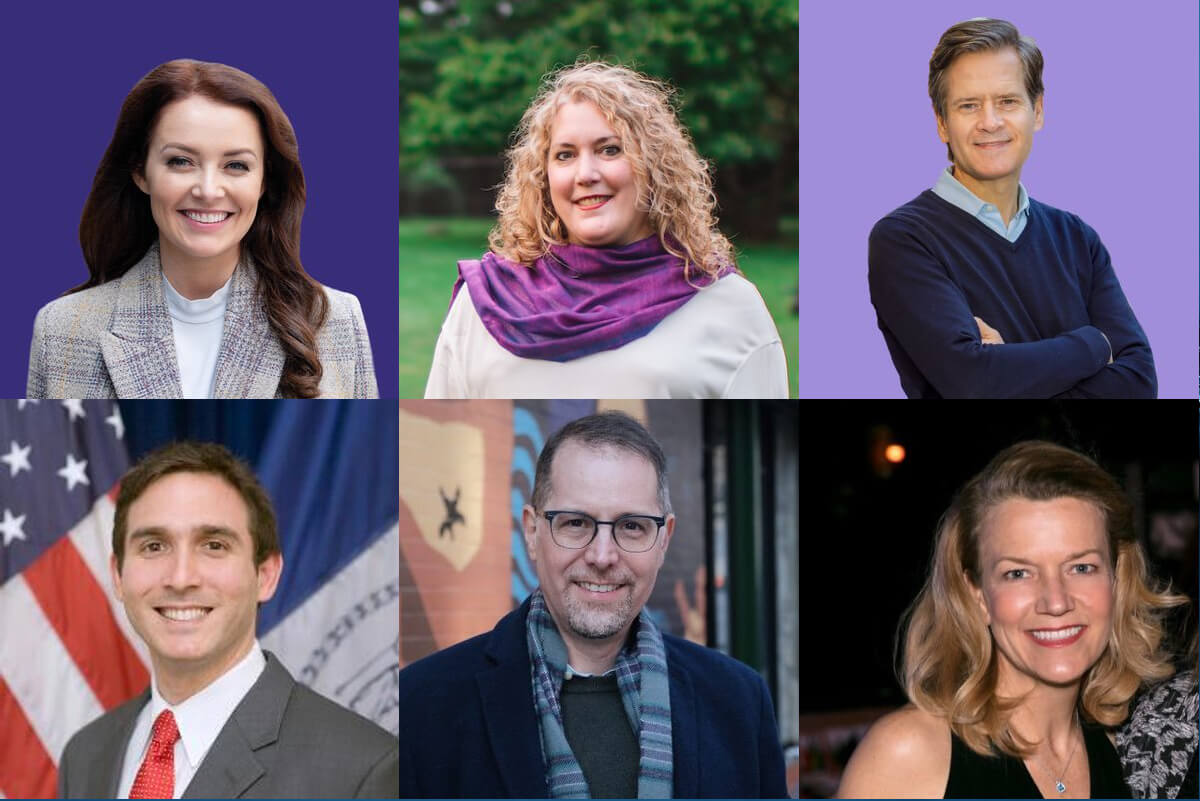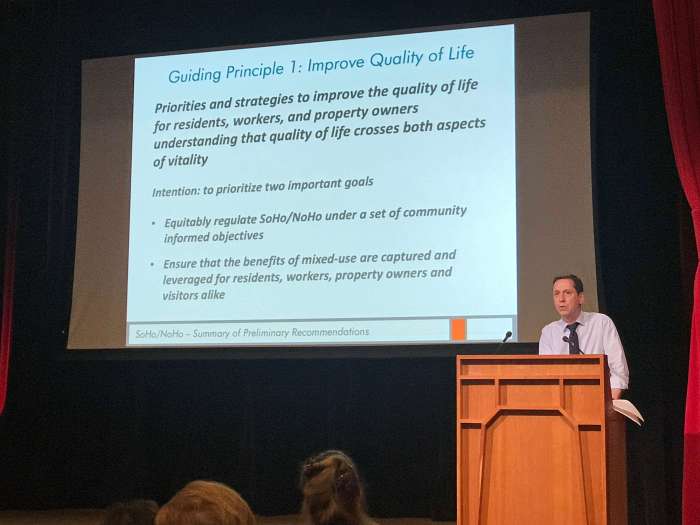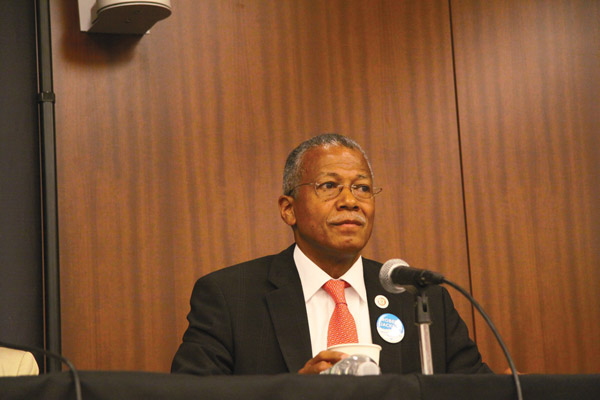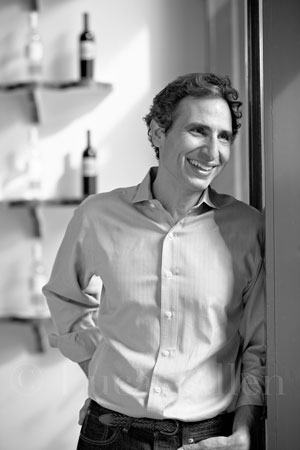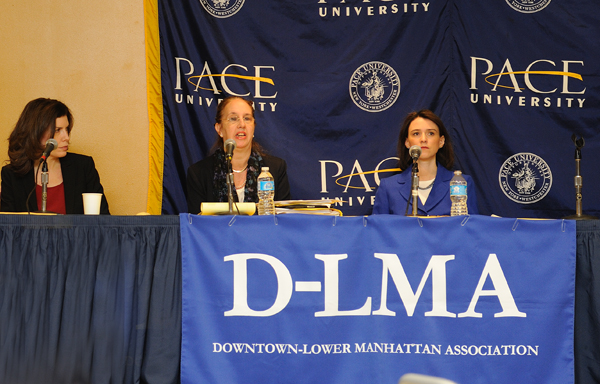There are nine candidates vying for a chance to take over term-limited Gale Brewer’s post as Manhattan borough president ahead of what will undoubtedly be a challenging several years in terms of the city’s pandemic recovery.
Although the role of the borough president is largely ceremonial, the borough’s top cheerleaders hold real power in land use and development projects as a key player in the city’s Uniform Land Review Process. As part of the ULURP process, community boards review all requests for changes in land use and then submit the application as well as their own recommendation to the Borough President.
The borough president then has roughly a month to review the proposed project and give their recommendations to the Department of City Planning. The borough president also nominates some community board members and can team up with deepening their influence as the highest position in the borough.
Most of the candidates want to take on quality of life issues, improvement to transits and work to further desegregate schools if elected.
Last year, amid a new push to change how selective middle and high schools screen their students Mayor Bill de Blasio and former Schools Chancellor Richard Carranza, announced the City would implement some changes to how competitive schools would choose their students.
Officials decided to do away with geographic requirements for high schools and offer the Specialized High School Admissions Test to middle schools across the city as well as do away with academic screens for the year. Although the changes have shown some positive results, many believe more can be done to desegregate schools across the five boroughs.
But most of the candidates stressed a desperate need to focus on the borough’s pandemic recovery which includes helping small businesses devastated by the COVID-19 pandemic order to promote the borough’s.
Key contenders
Candidate Kim Watkins, a long-time member of District 3 Community Education Council, believes in getting small businesses back online and hopes that as borough president she can work to create an easy process to operate pop-up shops and new small businesses and scaleable small businesses to mid-size businesses to get more people working again.
Elizabeth Caputo agrees that one of the easiest ways to help the borough and the city at large regain its footing after the economic blow that was the COVID-19 pandemic is to help small businesses.
Councilmember Mark Levine, who represented northern Manhattan and is also running for borough president, says he wants to establish a COVID recovery unit in the Borough President’s office if elected. The office would be headed by a COVID-19 Recovery Czar who would work directly with Levine to advance legislation that would improve health equity, bring people back into the workforce, bring back the arts and support small businesses.
Linsdey Boylan, who made headlines months ago after she accused former boss Governor Andrew Cuomo of sexual harassment, also wants to support small businesses which she described as an “essential part of Lower Manhattan’s unique cultural fabric.” If elected, Boylan would like to create a “one-stop-shop” program for small businesses to help business owners navigate the bureaucracy that comes with grant and loan programs as well as advocate for local businesses.
Borough President candidate and current state Senator Brad Hoylman is running on what he calls the “Manhattan Marshall Plan,” which would start with”comprehensive community-led planning for Manhattan’s twelve community boards.” If elected, Hoylman plans on giving community boards the ability to start 197-a plans in conjunction with the Borough President’s office. That section of the City Charter gives community boards and the Borough President the power to sponsor plans that recommend strategies to address economic development, housing, land use, or environmental or social issues in the borough.
Upper East Side Councilmember Ben Kallos, like many of his fellow candidates, believes that elected officials like the Borough President will have to get creative when it comes to building a better and more equitable city as part of the big apple’s pandemic recovery.



